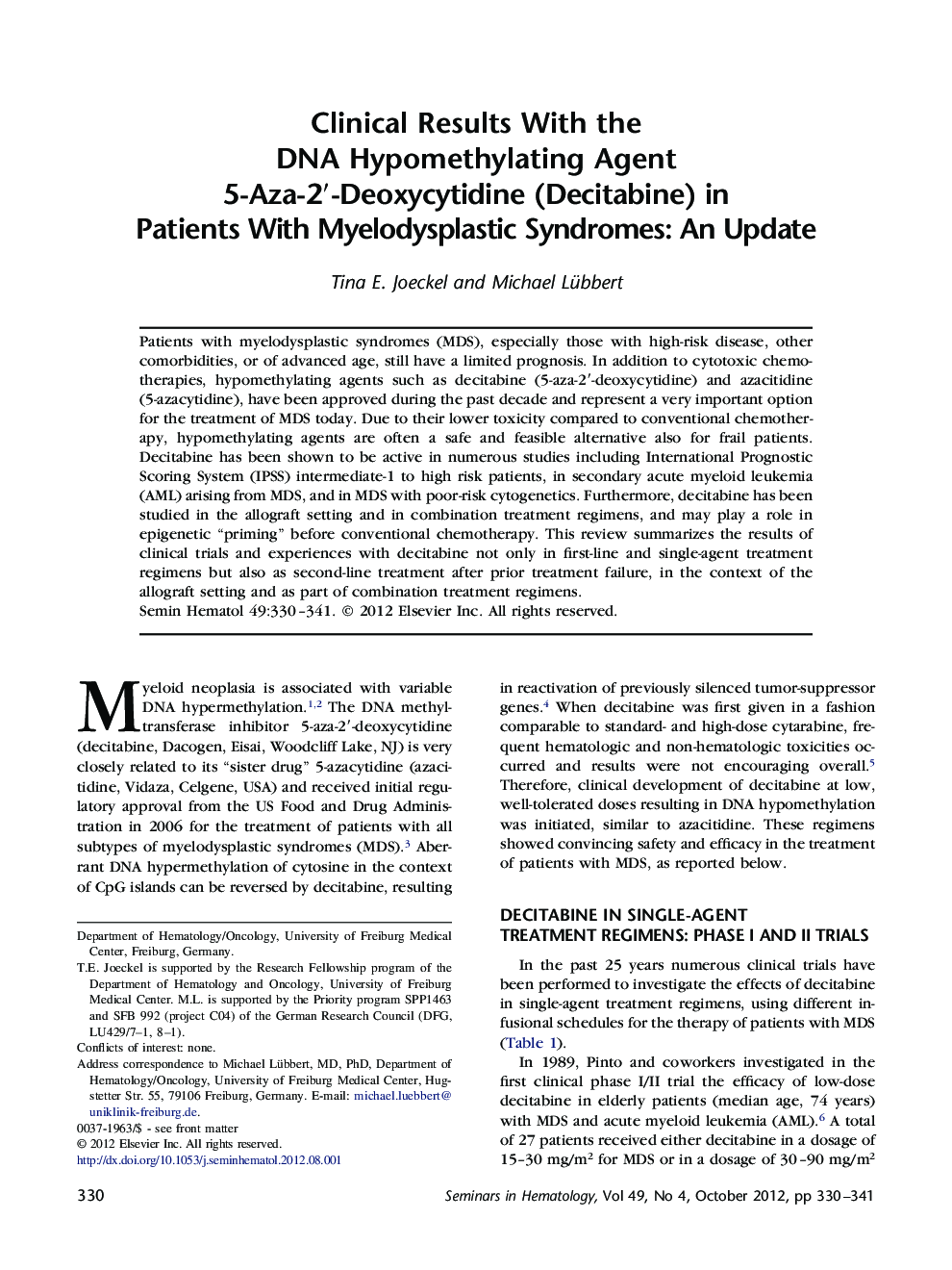| Article ID | Journal | Published Year | Pages | File Type |
|---|---|---|---|---|
| 3333725 | Seminars in Hematology | 2012 | 12 Pages |
Patients with myelodysplastic syndromes (MDS), especially those with high-risk disease, other comorbidities, or of advanced age, still have a limited prognosis. In addition to cytotoxic chemotherapies, hypomethylating agents such as decitabine (5-aza-2′-deoxycytidine) and azacitidine (5-azacytidine), have been approved during the past decade and represent a very important option for the treatment of MDS today. Due to their lower toxicity compared to conventional chemotherapy, hypomethylating agents are often a safe and feasible alternative also for frail patients. Decitabine has been shown to be active in numerous studies including International Prognostic Scoring System (IPSS) intermediate-1 to high risk patients, in secondary acute myeloid leukemia (AML) arising from MDS, and in MDS with poor-risk cytogenetics. Furthermore, decitabine has been studied in the allograft setting and in combination treatment regimens, and may play a role in epigenetic “priming” before conventional chemotherapy. This review summarizes the results of clinical trials and experiences with decitabine not only in first-line and single-agent treatment regimens but also as second-line treatment after prior treatment failure, in the context of the allograft setting and as part of combination treatment regimens.
